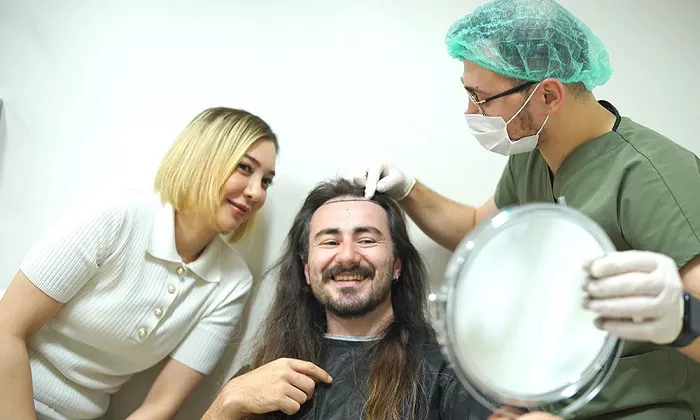Hair transplant surgery is a popular cosmetic procedure that can restore hair growth in areas affected by hair loss. While the procedure is generally safe and effective, many patients wonder what the odds are of a hair transplant being successful. In this comprehensive guide, we will explore the factors that can affect the success of a hair transplant and what patients can expect from the procedure.
Factors That Affect the Success of a Hair Transplant
Hair transplant surgery is a popular cosmetic procedure that can restore hair growth in areas affected by hair loss. However, the success of a hair transplant depends on several factors that can affect the outcome of the procedure. Here are some of the main factors that can impact the success of a hair transplant:
Surgeon’s Experience and Skill:
One of the most important factors that can affect the success of a hair transplant is the experience and skill of the surgeon performing the procedure. A qualified and experienced surgeon will have the expertise and knowledge to perform the procedure safely and effectively, reducing the risk of complications and ensuring the best possible results.
Type of Hair Transplant:
There are two main types of hair transplant surgeries: follicular unit transplantation (FUT) and follicular unit extraction (FUE). Both types of hair transplant surgeries can be successful, but the success rates may vary depending on the patient’s individual circumstances. FUT involves removing a strip of skin from the back of the scalp and transplanting it to the area of hair loss, while FUE involves removing individual hair follicles from the scalp and transplanting them to the area of hair loss.
Patient’s Age:
Age can also affect the success of a hair transplant. Younger patients may have a better chance of success because they typically have more active hair follicles. However, older patients may still be good candidates for hair transplant surgery, depending on their individual circumstances.
Severity of Hair Loss:
The severity of the patient’s hair loss can also affect the success of a hair transplant. Patients with more advanced hair loss may require more extensive surgery and may have a lower chance of success.
Health of the Scalp:
The health of the patient’s scalp can also affect the success of a hair transplant. Patients with scalp conditions, such as psoriasis or eczema, may have a lower chance of success.
Post-Operative Care:
Following proper post-operative care instructions is essential to the success of a hair transplant. Patients should follow all instructions provided by their surgeon, including avoiding strenuous activity and following a proper hair care regimen.
Hair Characteristics:
The patient’s hair characteristics, such as hair color, texture, and density, can also affect the success of a hair transplant. A skilled surgeon will take into account these factors to ensure that the transplanted hair looks natural and blends seamlessly with the surrounding hair.
It is important to note that the success of a hair transplant is not just determined by the number of grafts that are transplanted, but also by the natural appearance of the transplanted hair. A skilled surgeon will take into account all of these factors to ensure the best possible results from the hair transplant surgery. Patients should choose a qualified and experienced surgeon and follow all post-operative care instructions to achieve the best possible outcome from their hair transplant surgery.
Success Rates of Hair Transplant Surgery
Hair transplant surgery is a popular cosmetic procedure that can restore hair growth in areas affected by hair loss. One of the most common questions that patients have about hair transplant surgery is what the success rate of the procedure is. While the success rate of hair transplant surgery can vary depending on several factors, studies have shown that the procedure can be highly effective in restoring hair growth in areas affected by hair loss.
According to the International Society of Hair Restoration Surgery (ISHRS), the success rate of hair transplant surgery is approximately 90-95%. This means that 90-95% of patients who undergo hair transplant surgery can expect to see a significant improvement in their hair growth in the transplanted areas.
It is important to note that the success of a hair transplant is not just determined by the number of grafts that are transplanted, but also by the natural appearance of the transplanted hair. A skilled surgeon will take into account the patient’s individual hair characteristics, such as hair color, texture, and density, to ensure that the transplanted hair looks natural and blends seamlessly with the surrounding hair.
The success rate of hair transplant surgery can also depend on several other factors, including the surgeon’s experience and skill, the type of hair transplant, the patient’s age, the severity of hair loss, the health of the scalp, and proper post-operative care. Patients should choose a qualified and experienced surgeon and follow all post-operative care instructions to achieve the best possible results from their hair transplant surgery.
In summary, the success rate of hair transplant surgery is high, with approximately 90-95% of patients experiencing a significant improvement in their hair growth in the transplanted areas. Patients should work closely with their surgeon and follow all post-operative care instructions to achieve the best possible outcome from their hair transplant surgery.
Conclusion
Hair transplant surgery can be a highly effective way to restore hair growth in areas affected by hair loss. The success of a hair transplant depends on several factors, including the surgeon’s experience and skill, the type of hair transplant, the patient’s age, the severity of hair loss, the health of the scalp, and proper post-operative care. While the success rates of hair transplant surgery are high, patients should choose a qualified and experienced surgeon and follow all post-operative care instructions to achieve the best possible results from their hair transplant surgery.
Related Topics:

